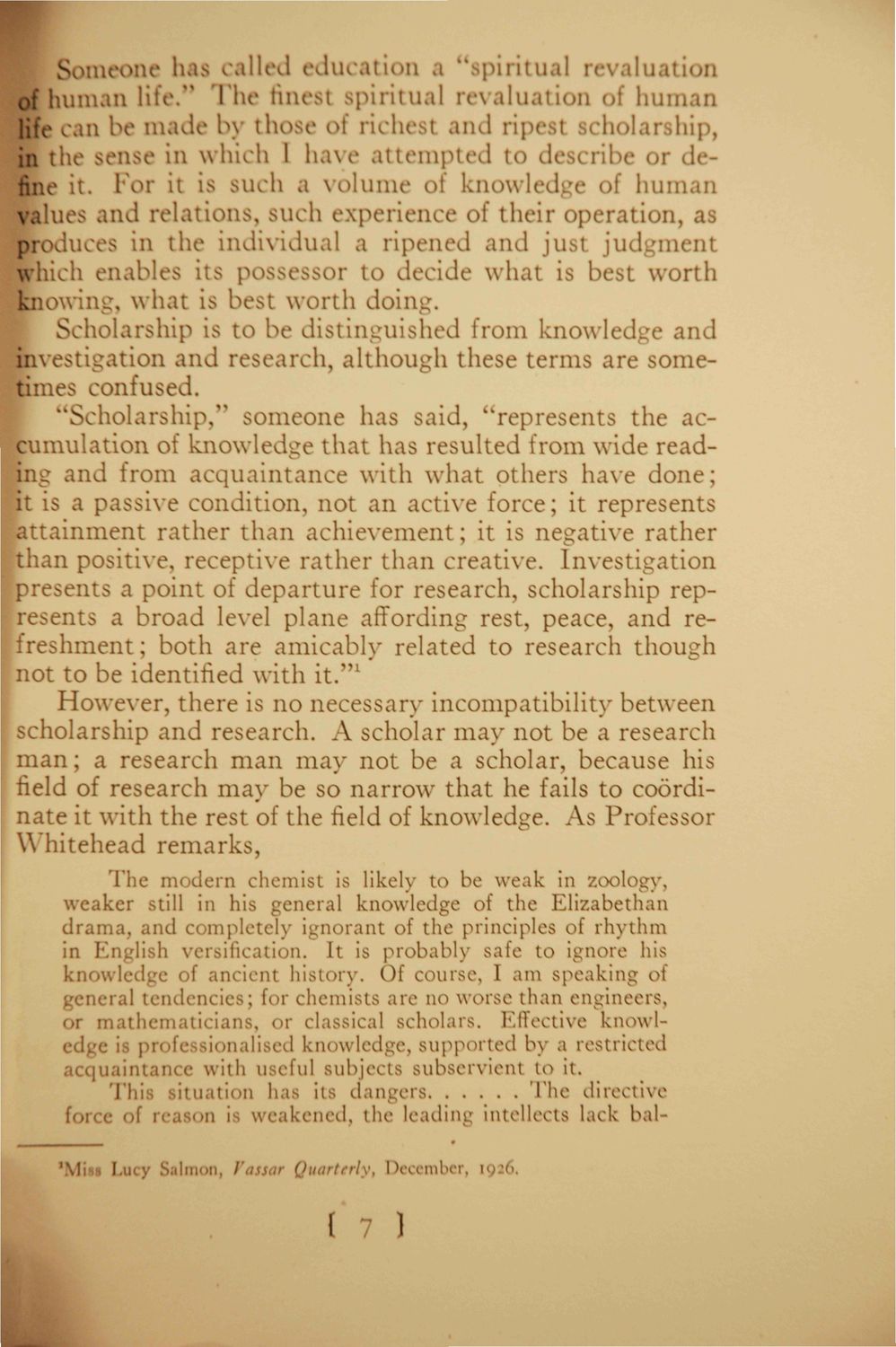| |
| |
Caption: Convocation - 1927
This is a reduced-resolution page image for fast online browsing.

EXTRACTED TEXT FROM PAGE:
Soin ac ha? allc 1 ( lucation a piritual revaluatioi of human life, I he tin< t iritual revaluation huiuai life m be made by those of richest and ripest scholarship, the $ use in which 1 have attempt- 1 I describe or define it. 1 r it is such a \olume of knowledge of human values and relations, such experience of their operation, as produces in the individual a ripened and ju I judgmen which enables its possessor to decide what is best worth knowing, what is best worth doing. Scholarship > to be distinguished from knowledge and investigation and research, although these terms are sometimes confused. Scholarship/' someone has said, "represents the accumulation of knowledge that has resulted from wide reading and trom acquaintance with what others have done; it is a passive condition, not an active force; it represents attainment rather than achievement: it is negative rather than positive, receptive rather than creative. Investigation presents a point of departure for research, scholarship represents a broad level plane affording rest, peace, and refreshment; both are amicably related to research though 1 not to be identified with it." However, there is no necessary incompatibility between scholarship and research. A scholar may not be a research man; a research man may not be a scholar, because his field of research may be so narrow that he fails to coordinate it with the rest of the field of knowledge. As Professor Whitehead remarks, The modern chemist Is likely to be weak in zoology, weaker still in his aeral knowledge of the Elizabethan drama, and completely ignorant of the principles of rhythm in Ei lish versification. It is probably safe to ignore his knowledge of ancient history. Of course, I am speaking oi gei ral tendencies; for chemists are no worse than engineers, or mathematicians, or classical scholars. Effective knowledge i I rofessionalised knowledge, supported by a restricted acquaintan with U illl subjects subservient to it. This situation has its dangers The dir ective fore f r« on is weakened, the leading intellects lack bal• i r i i • 1 • 'Mi Lucy Salmon. / Quart l\\ D tnber, 1921 < 7 }
| |